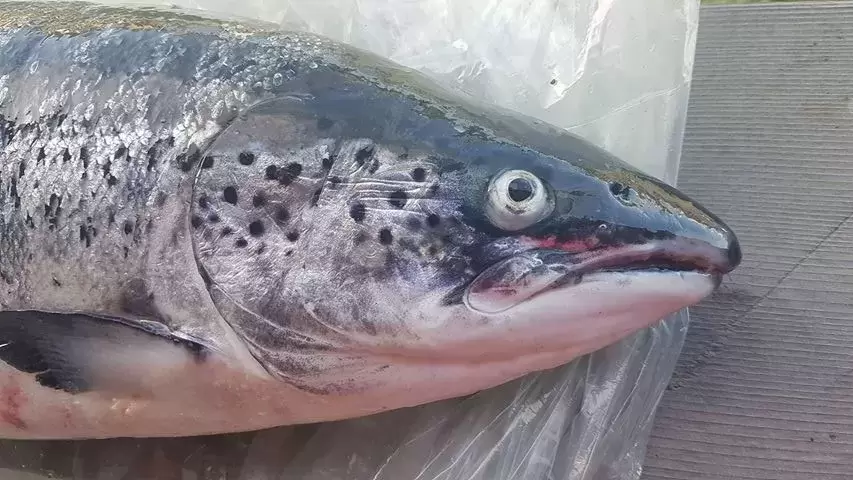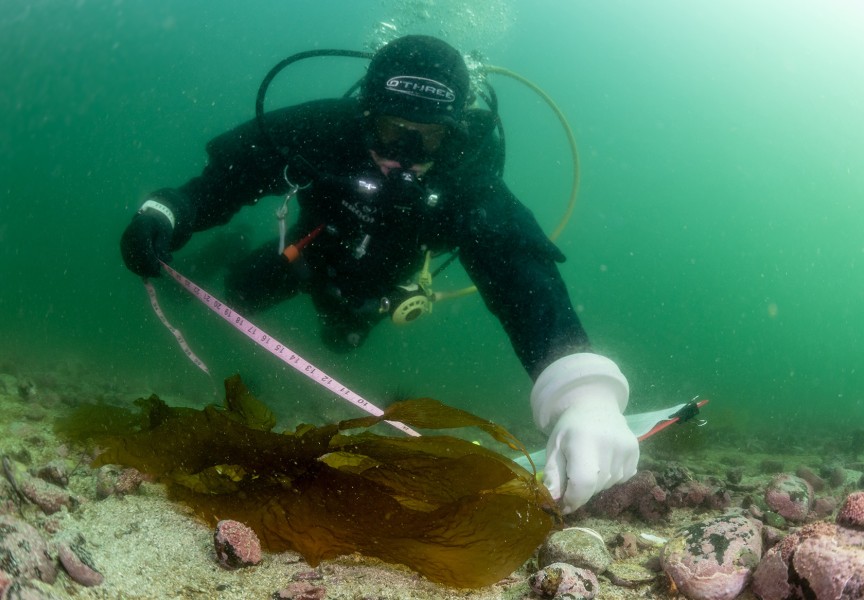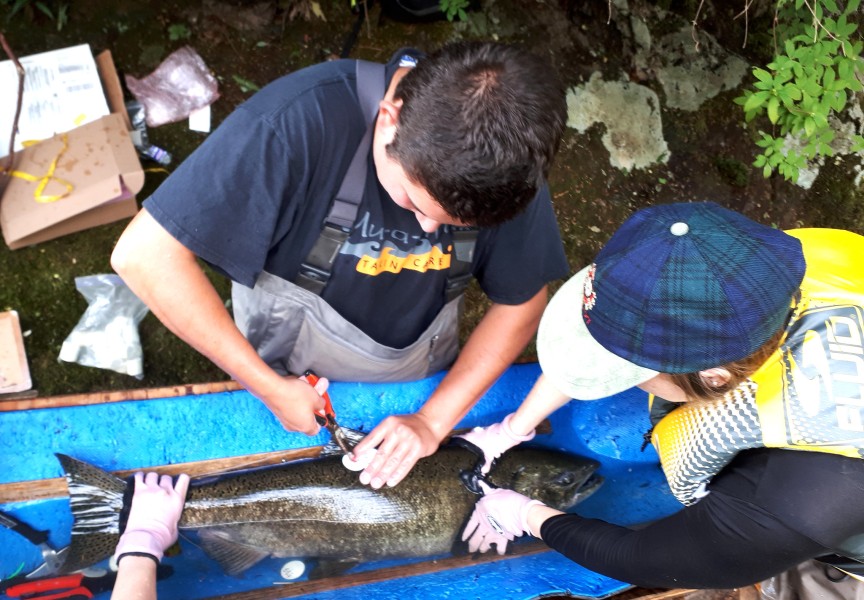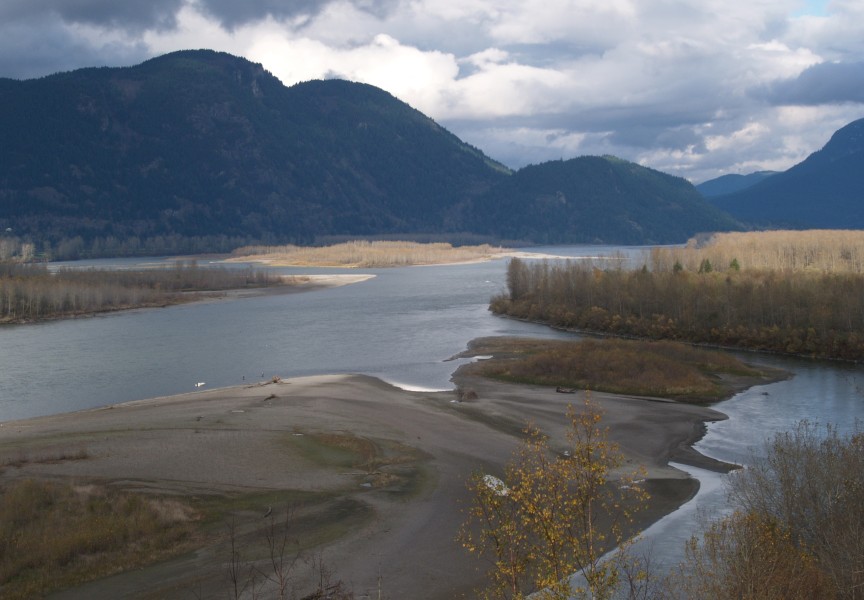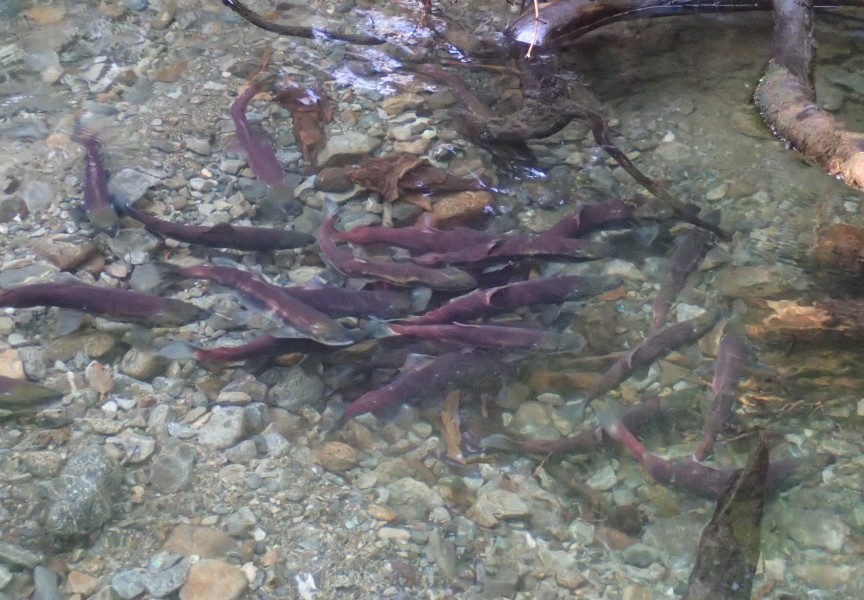So far Atlantic salmon caught around Vancouver Island appear healthy, but have underdeveloped sex organs, making the possibility of breeding unlikely, according to a senior biologist with Fisheries and Oceans Canada.
The federal department has been monitoring the spread of Atlantic salmon on the West Coast since a net pen collapsed on Aug. 21 in Washington State, releasing over 150,000 of the farmed fish into the Pacific Ocean. The breached facility was operated by Cook Aquaculture near Cypress Island, located west of Victoria.
Since the incident DFO has received reports of Atlantic salmon reaching as far as the Adam and Eve rivers on the northeast side of Vancouver Island, between Campbell River and Port Hardy. The non-native fish have also been caught near Tofino and in the Fraser River, reaching as far inland as the Golden Ears Bridge.
Before the Cook Aquaculture collapse the DFO’s Atlantic Salmon Watch program confirmed just three cases of the species from 2011-17. So far the department has received over 30 Atlantic samples, with more expected to come in, said Byron Andres, the DFO’s senior biologist with Aquaculture Environmental Operations.
“I am waiting on a large number being sent to me from a collection point in the Lower Mainland,” he said, noting that the DFO “remains vigilant” in monitoring the possibility of the species reproducing in West Coast waters.
“We will be looking for Atlantic salmon across the areas where they have been reported, captured or seen,” he said in an email to the Ha-Shilth-Sa, adding that Atlantic salmon provided to the department have been analysed. “The vast majority have empty stomachs and underdeveloped gonads (sex organs). However, most of the fish are in relatively good health with significant mesenteric fat deposits. This amount of fat is not unusual in aquaculture specimens.”
The Cook Aquaculture incident was followed by renewed opposition to open water fish farms on the west coast. The Union of BC Indian Chiefs blame the practice for disease found in Pacific salmon, and have advocated for a moratorium on ocean-based net-pen facilities with a call for all fish farms to be moved to land.
Historically the DFO has found no evidence that farmed Atlantic salmon populations can survive outside pens in the open ocean, said Andres.
“Atlantic salmon do not interbreed with Pacific salmon and so far, there is no evidence that they have established breeding populations in B.C.,” he said. “Although they are unlikely to be successful, based on history in B.C., attempted breeding could have a small competitive impact on wild Pacific salmon breeding in areas where spawning habitat is very limited by taking up space.”
In Canada aquaculture operators are required to report all breaches to the DFO. The last significant escape occurred in 2014 when a boat propeller caused 13,687 rainbow trout to escape from a pan at Brettell Point, north of Powell River, according to DFO records.

